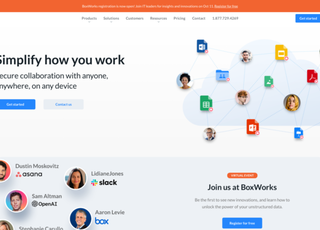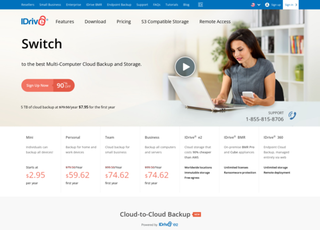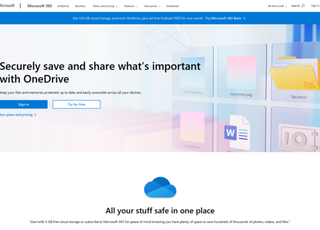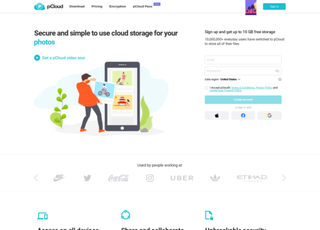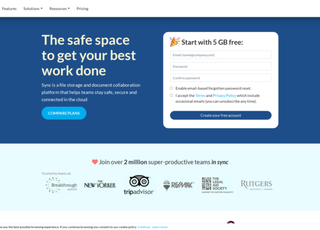MediaFire
https://www.mediafire.com/MediaFire
MediaFire is a cloud storage service that allows users to store, share, and collaborate on files. Founded in 2006 by Derek Labian and Tom Langridge, it has grown steadily over the years, earning a reputation as a reliable and user-friendly platform.
Features
Storage Capacity
MediaFire offers both free and premium accounts. The free version provides a generous amount of storage space, which is enough for casual users, while the premium versions offer more storage and additional features.
File Sharing
Users can easily share files or folders by generating a link. This link can then be sent to others, allowing them to access the shared content without requiring a MediaFire account.
Folder Collaboration
Multiple users can collaborate on a single folder, making it easier to share documents and files among a group.
File Versioning
MediaFire keeps track of file versions. If you make a change to a file and later want to revert to an earlier version, this feature can be a lifesaver.
Mobile App
The platform provides a mobile app that's available for both Android and iOS, making file access and sharing on-the-go quite convenient.
Direct Media Streaming
Users can stream media files like music and videos directly from their MediaFire account without the need to download them first.
Security
MediaFire employs security measures to keep user data safe. This includes secure servers and encrypted connections.
MediaFire has established itself as a trustworthy and user-centric cloud storage solution. For users who prioritize an easy-to-use interface, MediaFire stands out. The process of uploading, accessing, and sharing files is intuitive, making it suitable for individuals of all tech proficiency levels.
The free storage offering is genuinely a highlight. It provides ample space for casual users, making it an attractive option for those not looking to invest in cloud storage immediately.
Another notable feature is the direct media streaming. For individuals with vast collections of music or video, having the ability to stream directly can be both a time-saver and a space-saver on local devices.
However, like all platforms, it's essential to remember that while MediaFire does offer security measures, users should always be cautious when storing sensitive or personal information on any cloud platform.
Additional Considerations
Direct Linking
One of the more popular features with bloggers and webmasters is MediaFire's direct linking capability. This feature allows users to link directly to a file, making it simpler for visitors to download or access content.
Desktop Sync
MediaFire also offers desktop software which enables users to sync their local files with their cloud storage seamlessly. This is particularly helpful for those who want an automatic backup of their data or want to ensure they always have access to the most recent version of a file.
Bulk Upload and Download
Users have the ability to upload or download multiple files at once, a time-saving feature, especially when dealing with large volumes of data.
Customizable Branding
Premium users can also customize their download pages. This is beneficial for businesses or professionals looking to maintain a consistent brand identity across platforms.
MediaFire in Comparison
While MediaFire offers a robust suite of features and an attractive user interface, it's always beneficial to gauge its standing in the broader cloud storage ecosystem. Here's a brief comparison with other popular storage solutions:
Dropbox
Dropbox is one of the pioneers in the cloud storage industry. While Dropbox offers an easy-to-use platform and solid integration capabilities, especially with third-party apps, MediaFire tends to offer more free storage space. Dropbox, however, might edge out with its more advanced collaboration tools, especially for businesses.
Google Drive
Google Drive is a behemoth in the cloud storage realm due to its integration with other Google services. Drive offers real-time collaboration tools, especially with Google Docs, Sheets, and Slides. MediaFire doesn't have such an integrated office suite, but it excels in straightforward file storage and sharing.
OneDrive
Microsoft's cloud storage solution, OneDrive, is deeply integrated with Windows and the Microsoft Office Suite. It offers advanced collaboration for Office users. MediaFire, in contrast, is more platform-agnostic and might be preferred by users who want a straightforward, no-frills storage solution.
Mega
Known for its emphasis on security and encryption, Mega offers end-to-end encryption, ensuring that only the user can decrypt their files. While MediaFire does have security measures in place, users looking for more stringent security might lean towards Mega.
MediaFire has proven to be a reliable cloud storage option for many users around the world. Its blend of user-friendly features, paired with a generous free storage offering, makes it an attractive choice for a diverse user base. While there are areas where the platform can enhance its offerings, especially in the realm of advanced security, its existing suite of features makes it a strong contender in the cloud storage market.
For individuals and businesses on the lookout for a flexible and efficient cloud storage solution, MediaFire is certainly worthy of consideration. It strikes a good balance between usability and functionality, ensuring that users can store and share their data with ease and confidence.





















